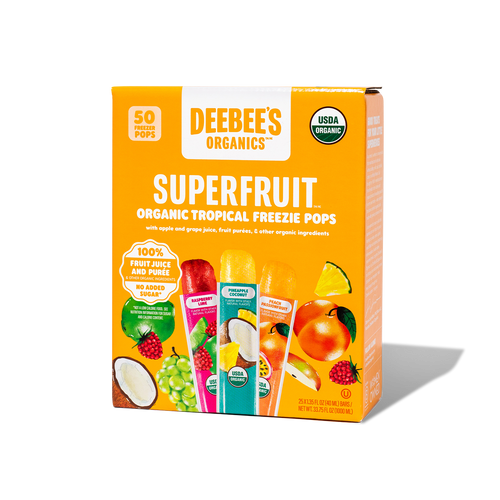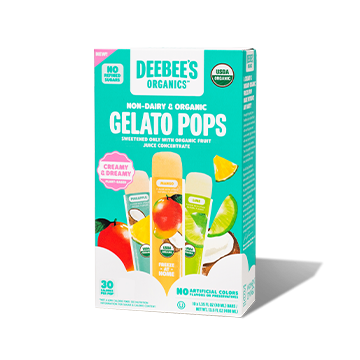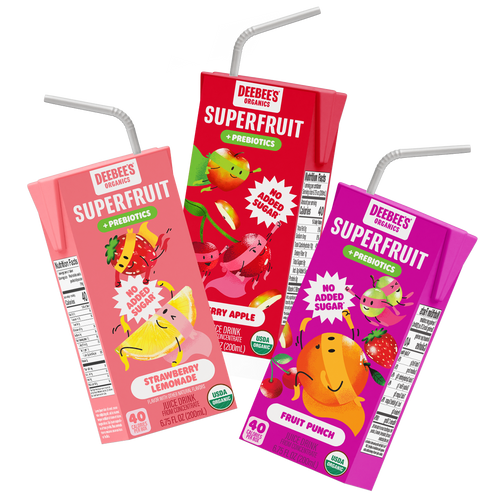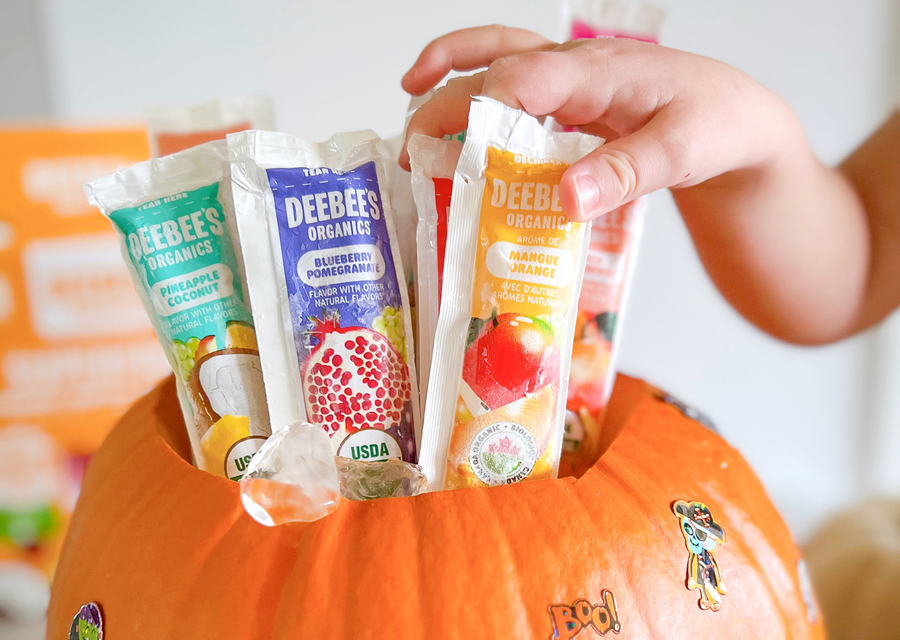From fruit or from a lab? Let's talk natural flavors
Natural flavors play an important role in modern food science. They help ensure products taste delicious while maintaining consistent flavor profiles all year round. Since the flavor in fruit can vary seasonally, we use a tiny bit of organic-compliant natural flavors in our organic treats to give you the best and most consistent taste every year! All of the organic and natural flavors we use are substances extracted from real fruit sources with no synthetic chemicals.
What Are Artificial and Natural Flavors?
If you were to open your pantry and explore the ingredients list on many of your favorite foods, you might notice three different classifications: artificial, natural, and organic flavors. While they may sound similar, the creation and regulations around these flavors are slightly different. Here’s how:
- Artificial flavors are, as the name suggests, artificially created. This means these flavors are not naturally occurring (from nature) and are typically created by scientists in a lab. These flavors can contain preservatives, solvents, emulsifiers, and other additives.
- Even though natural flavors are also created by scientists, they are derived from substances and flavors found in nature, such as plants or animals. While these flavors are derived from natural sources, they can still include solvents, carriers, and other additives.
- By contrast, organic flavors (sometimes called “organic natural flavors”) must abide by a more rigorous testing, development, and regulatory process to get certified. To be considered organic, a flavor must not only be derived from organic sources but must also exclude GMOs, artificial preservatives, pesticides, and synthetic additives.
What About Our Products?
At DeeBee’s Organics, we’ve always prioritized transparency and clean ingredients. We are proud that organic fruit is the main ingredient in all of our products. Since the taste of fruit varies seasonally and by batch, we use a tiny amount of natural flavors for the best and most consistent taste all year round.
Our SuperFruit Freezies and Non-Dairy Gelato Pops use certified organic flavors, derived from real fruit. Although our organic natural flavor supplier does not allow us to give out their proprietary information, we do disclose every ingredient (including those from our organic natural flavor supplier) to our organic certifiers to ensure it meets USDA Organic standards. If you want to learn more about Organic Flavors Requirements, check out this guide from the Organic Trade Association!
Our SuperJuice Freezies are made with organic-compliant natural flavors derived from real fruit and meet the strictest international standards - including the European Union’s organic flavoring regulations. That’s the gold standard – and one we hold ourselves to.
All of the natural flavors we use are:
- Derived from real fruit - not synthetics, animals, or insects
- Made without GMOs, pesticides, herbicides, or artificial preservatives
- Compliant with the EU requirement that 95% of the flavor be from the named source
- Disclosed in full to our certifying bodies (Ecogruppo and Baystate) to ensure they meet USDA Organic standards
We can also confirm that our natural flavors – like all our ingredients – do not contain any gluten, allergens, soy, corn, canola, synthetic chemicals, or hidden additives.
Want to Learn More?
Be sure to check out our blog for more information on our Beyond Certifed Organic Promise and the story of How Our SuperFruit Freezies Came To Be.






